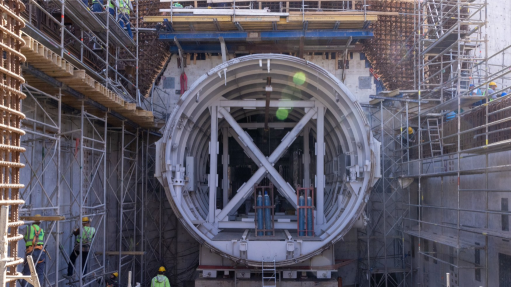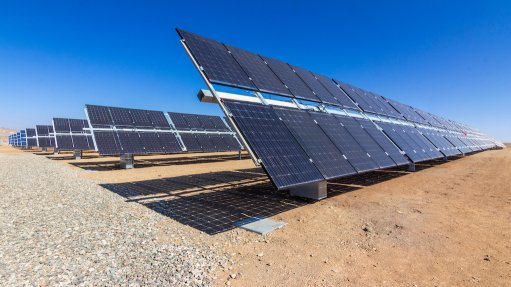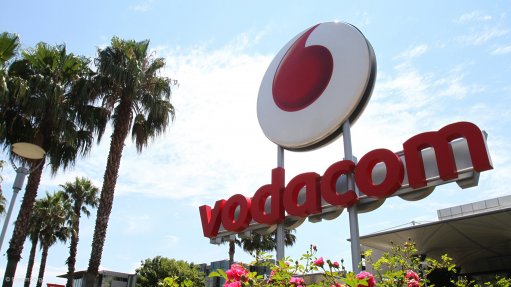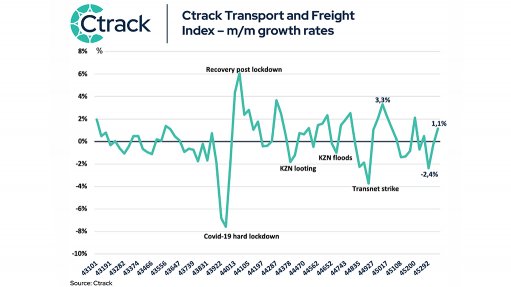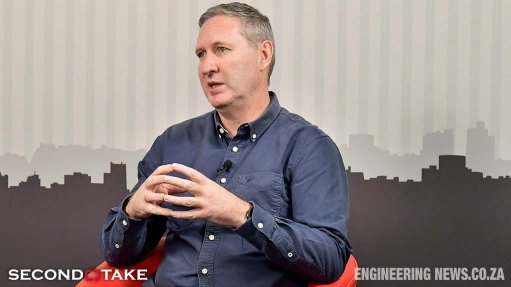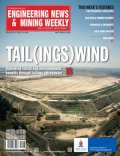Cova Advisory calls for a green budget
This article has been supplied as a media statement and is not written by Creamer Media. It may be available only for a limited time on this website.
There will be far too much red in the 2020 budget. Finance minister Tito Mboweni faces a downgrade threat from Moody’s, an expanding fiscal deficit, disappointing tax revenues and challenges in the parastatals, which are hungry for cash.
He cannot be unaware of the green tide of global action that is being mustered to stem the tsunami of climate change. After all, he attended Davos, where the politicians’ bluster was drowned out by the anguished cries of one Swedish schoolgirl, Greta Thunberg. This was a green Davos, and it must give rise to a green budget.
Whatever the challenges, whatever the constraints, this must be a budget that launches SA on a new path of sustainability. Such a path is not just a necessary and overdue response to climate change, but it also involves a strong dose of self-interest.
The government has pledged that SA will move away from its dependence on coal, which is a major villain in the climate change lexicon. And even if words come more easily than actions, SA will undoubtedly be a healthier country with fewer coal-related emissions.
SA depends heavily on foreign capital to fund its infrastructure, such as power stations, and were it to stubbornly insist on coal while the rest of the world is shifting its focus away from it, we would find ourselves with little or no overseas money to build future coal power plants.
Large investors, groups and disclosure initiatives such as the Task Force for Climate-Related Financial Disclosures (TCFD), chaired by Michael Bloomberg, are requesting companies to disclose and respond more to climate risks and opportunities.
We should also not forget that we need to work on climate change issues because international trade rules are evolving and will increasingly penalise dirty products — in which case we would lose out on international trade and jobs. There is even talk about broader carbon adjustments in the form of direct tariffs on the carbon content of imported products.
Unless SA actively and imaginatively manages the transition, it will lose jobs because it will lose control over the pace of adjustment. Stubbornly relying on coal would mean we would lose touch with the technologies of tomorrow, and the benefits they will bring. Green, then, is good. It should be a major pillar of the budget, not an afterthought.
There may be little room for manoeuvre in this month’s budget, but there are a few measures which, in the wider scheme of things, will send a much-needed message that the government is not just concerned about the environment but is prepared to actually do more to combat the threats to the planet. And to ourselves.
We have a carbon tax, and it will start to be collected this year. But what will happen to the money? Instead of being ring-fenced it will probably be absorbed into the general fiscus, to be used for routine spending on programmes that may have little or nothing to do with the environment.
Behind trend
Instead, let us ring-fence the cash, and use it to preserve and expand those incentive schemes that encourage and reward greener practices and promote energy saving. Offer companies more support to curb their pollution, offer households support to install solar panels, and insist that Eskom and politicians commit to supporting a green revolution — instead of trying to hold back the tide.
In the wider budget framework the costs will be small, but the benefits will be enormous. While the world is accelerating towards a new era of electric vehicles, annual sales in SA are just a few hundred cars a year. We are way behind this global trend.
The government can and should do more by investing in charging stations — preferably solar-powered ones — and the upcoming budget provides an ideal opportunity to do so. One reason electric vehicles are so much more expensive than their gas-guzzling relatives is that they are taxed as if they are emitters (apart from there being some reduction in carbon emission tax, which is petty cash), in defiance of all green logic.
Start by slashing these taxes, introduce new subsidies, and start greening SA’s roads. Similar support should be offered to those municipalities that adopt fleets of clean buses, and to industry players that do the same. There is insufficient government support to promote manufacturing of green cars and buses in SA and not enough investment in research & development to stimulate this industry.
Modern rail
Why not set a realistic deadline, after which no vehicle procurement by the state will be for anything other than an electric or a hybrid vehicle? After all, the government does buy many vehicles. Imagine if our ministers and business leaders were all seen driving around in electric vehicles. And encourage a similar move from the private sector through tough new green conditions on tenders and investment incentives.
Shift support for an ailing state airline and instead invest the billions in cleaner, modern rail. Instead of flying our ministers from Gauteng to Cape Town and back, put them on a less-polluting train. So far, the government strategy for the car industry has focused on boosting production; now it is time to green that production.
Green criteria should also be included in capital incentive programmes. One such, known as S12I, is a tax incentive on capital investment and it did include energy efficiency as a green criterion. It is a great start, but the deadline for applications for this incentive is March 31 2020, and there is no replacement in sight. We need to convince investors we are open for business with a green agenda to support the sustainable development goals.
Another green initiative that could help transform the environmental scene is to increase tax on plastic, a big pollutant. Proceeds could be used to support glass producers.
My call is to the finance minister because of his role in the economy, but he cannot and should not have to do it all by himself. What are government or business leaders doing? The example of a green budget should waft like a fragrant mist across the whole government and the economy.
There is much work for the lead department — the department of environmental affairs, fisheries & forestry — but there are also vital roles for transport, trade & industry, minerals & energy, science & technology, for education, the parastatals and the development finance institutions such as the Industrial Development Corporation.
We need a catalyst; we have to launch a new green wave somewhere. And Tito Mboweni, the man who controls the purse strings, is a promising candidate. A green budget may mean some extra costs for the fiscus, but the cost of another budget cycle of environmental inaction will be far, far higher.
Cova Advisory
Comments
Press Office
Announcements
What's On
Subscribe to improve your user experience...
Option 1 (equivalent of R125 a month):
Receive a weekly copy of Creamer Media's Engineering News & Mining Weekly magazine
(print copy for those in South Africa and e-magazine for those outside of South Africa)
Receive daily email newsletters
Access to full search results
Access archive of magazine back copies
Access to Projects in Progress
Access to ONE Research Report of your choice in PDF format
Option 2 (equivalent of R375 a month):
All benefits from Option 1
PLUS
Access to Creamer Media's Research Channel Africa for ALL Research Reports, in PDF format, on various industrial and mining sectors
including Electricity; Water; Energy Transition; Hydrogen; Roads, Rail and Ports; Coal; Gold; Platinum; Battery Metals; etc.
Already a subscriber?
Forgotten your password?
Receive weekly copy of Creamer Media's Engineering News & Mining Weekly magazine (print copy for those in South Africa and e-magazine for those outside of South Africa)
➕
Recieve daily email newsletters
➕
Access to full search results
➕
Access archive of magazine back copies
➕
Access to Projects in Progress
➕
Access to ONE Research Report of your choice in PDF format
RESEARCH CHANNEL AFRICA
R4500 (equivalent of R375 a month)
SUBSCRIBEAll benefits from Option 1
➕
Access to Creamer Media's Research Channel Africa for ALL Research Reports on various industrial and mining sectors, in PDF format, including on:
Electricity
➕
Water
➕
Energy Transition
➕
Hydrogen
➕
Roads, Rail and Ports
➕
Coal
➕
Gold
➕
Platinum
➕
Battery Metals
➕
etc.
Receive all benefits from Option 1 or Option 2 delivered to numerous people at your company
➕
Multiple User names and Passwords for simultaneous log-ins
➕
Intranet integration access to all in your organisation






